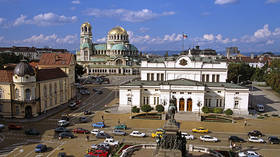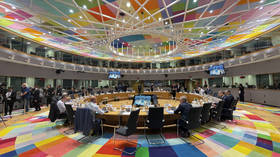Western Balkans move a step closer to EU accession

The Bulgarian parliament voted, on Friday, to lift its veto on North Macedonia’s EU accession talks, handing an olive branch to Skopje after years of tension.
Following Thursday’s summit between 27 EU leaders and six heads of government from the Western Balkans, the removal of the veto, related to a longstanding cultural and linguistic dispute between Sofia and Skopje, was supported by 170 Bulgarian MPs, with 37 voting against and 21 abstaining.
The decision was hailed as “historic” by Bulgarian Prime Minister Kiril Petkov. Writing on Twitter, he confirmed that the parliament had approved a French compromise proposal. The prime minister also stressed that the “integration of the Western Balkans is the strategic interest of the EU.”
The country’s Foreign Ministry was also quick to respond to the news by saying that Sofia had not “added any new requests to Skopje” and was prepared to approve holding the first political intergovernmental conference once North Macedonia signed the bilateral protocol.
According to parliament’s decision, nothing in North Macedonia’s EU accession process could “be interpreted as recognition of ‘Macedonian language’ by Bulgaria.” Sofia also reserved the right to block Skopje’s EU bid talks in the future, if necessary.
Now the parliament of North Macedonia must approve the French-brokered proposal before the veto can actually be lifted.
However, on Thursday, North Macedonian Prime Minister Dimitar Kovacevski said that “in its current form” the proposal was “unacceptable” for his country.
Bulgaria imposed its veto in 2020 when North Macedonia, an EU candidate since 2005, along with Albania, were set to start negotiations with the EU. Sofia wants Skopje to officially recognize that its language and culture are essentially Bulgarian, to drop any anti-Bulgarian stance and to mention a Bulgarian minority in the country’s constitution. North Macedonia has been refusing to fulfill those requests, saying that its national identity is not up for discussion.
Since the accession process can proceed only under unanimous support, Bulgaria’s opposition effectively put a veto on the talks, which in turn put a halt to talks for Albania, since it is next in line after North Macedonia.













